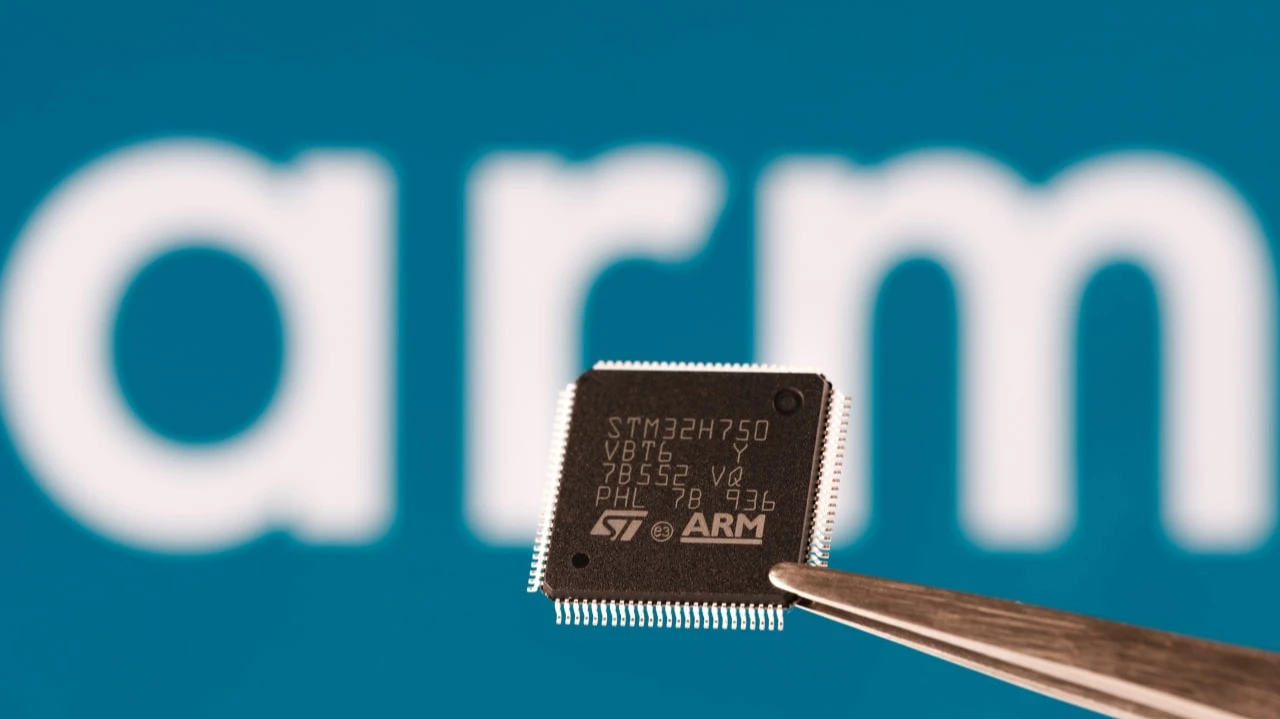The analyst advised buying Arm shares. He saw a driver that is not embedded in the price
If Arm starts making its own AI chips, it will become a competitor to its own customers, Nvidia and Qualcomm

Bank BNP Paribas improved the rating of British chip developer Arm, recommending to buy its securities. Analysts expect their growth by more than 30%. The company may soon turn from a pure developer of chip architecture into a full-fledged manufacturer of processors for AI, and this potential, according to BNP Paribas, is not yet built into the current price;
Details
A team of analysts at BNP Paribas led by David O'Connor July 16 raised Arm's rating from "neutral" to "above market" (outperform), equivalent to a recommendation to buy its securities. At the same time, analysts sharply raised their target price from $110 to $220, which implies a 33% upside from its July 17 closing level.
According to O'Connor, the rapid growth of capital expenditures of the largest technology giants on AI projects creates a natural lever for Arm to enter the market of production of specialized chips for artificial intelligence. While the company's management has not officially announced its intention to produce its own chips, BNP analysts said their data shows "increasingly clear signs" that Amr is quietly but surely emerging as a key player in this market. The Financial Times wrote in February that the British developer intends to unveil a new chip in the summer, with Meta Platforms expected to be the first buyer;
At present, Arm operates solely on a license model: the company develops the architecture, while its partners produce and sell the finished chips themselves. BNP Paribas estimates that if Arm manages to capture just 7% of the specialized AI chip market, which could reach $200 billion by 2030, revenue from its manufacturing division would bring the company between $8 billion and $15 billion in fiscal years 2030 and 2031, doubling its earnings before interest and taxes;
The company's depositary receipts jumped 5% on the Nasdaq exchange on Wednesday, July 16, when BNP published its note, and added another 2.1% on Thursday. Arm's value is already up more than 27% since the beginning of this year, but the bank estimates it has barely factored in the potential in the new segment. Analysts predict significant growth if the company does start producing its own chips.
Notably, the move into manufacturing would make Arm a competitor to its current customers such as Broadcom and Nvidia, noted MarketWatch. Still, analysts said the benefits of vertical integration and the ability to cover a broad part of the semiconductor market supply chain outweigh the potential risks of conflict with partners.
What other analysts think
Goldman Sachs on July 10 began covering Arm, setting a neutral rating with an outlook of $160 per paper, which is already almost equal to current quotes. The investment bank reasoned that positive factors in the form of the company's leadership in the smartphone market and higher royalties have already been factored into current valuations.
Analysts at Mizuho July 3 increased their target on Arm's securities from $160 to $180 and reiterated a buy recommendation. They believe the company is a major beneficiary of the growth of Microsoft's Azure cloud service, which is one of its biggest customers. They highlighted favorable growth prospects in AI, as well as raised revenue and earnings per share forecasts for fiscal years 2026 and 2027.
Following Arm's May 8 earnings release, several analysts, including JPMorgan, TD Cowen and Keycorp, worsened Arm's price target. The company then published a weak second-quarter earnings forecast that fell short of Wall Street expectations.
The consensus target on July 17 is $146.3 - it is almost 8% less than current quotes. At the same time, the majority of ratings issued by Wall Street analysts suggest a recommendation to buy Arm securities: 24 out of 41, follows from MarketWatch data. 14 analysts advise holding the securities in a portfolio and three suggest selling them.
This article was AI-translated and verified by a human editor
